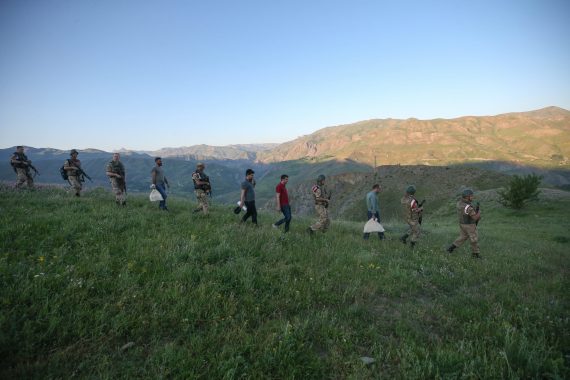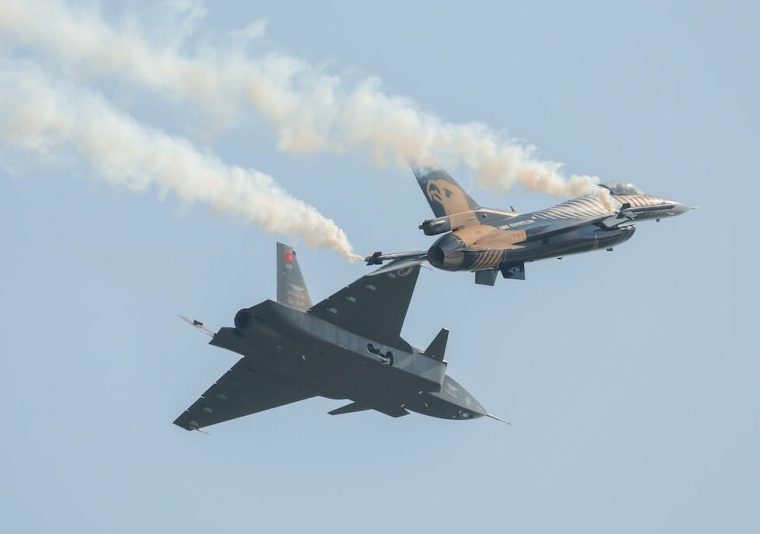The June 24 elections are over. As for the big picture, there is no surprise. Many analysts in Turkey predicted the results before the election day. The day before the elections, you also read in this column that Erdogan was likely to win the elections in the first round but with a divided parliament; the HDP votes, for the first time, would pass the MHP’s, and other projections as such. Nevertheless, the results are still full of depth to analyze, and here we go with a focus on ethnic voting patterns in Turkey.
Kurdish votes were expected to play a key role in the June 24 elections. As for the parliamentary elections, whether the HDP would exceed the 10% threshold would determine the AK Party’s chance to hold a majority in parliament. As for the presidential elections, the Kurdish votes mattered as well, which is natural because in an election that requires %50+1 votes to win, you cannot neglect any significant social segments. These novelties make it necessary to analyze the voting pattern in Turkey’s eastern cities where Kurds are thought to be significant demographically speaking.
The main results of the June 24th elections on these terms are:
- The AK Party and the HDP still dominate Turkey’s elections in the east.
- The HDP continued its loss in the region – as was the case in the latest general elections of November, 2015.
- Pre-electoral alliances of other parties cost seats to the HDP.
- Turkey’s Kurdish votes do not act as a block but intra-Kurdish differences prevail in the region.
The AK Party and HDP still dominate Turkey’s elections in the east
In the eastern cities of Turkey, where the ethnic Kurdish population is in significant numbers, the competition took place between the AK Party and the HDP in this election. In the region, speaking of the parliamentary elections:
- The AK Party and the HDP shared the first spot in all the cities of the region. Whereas the AK Party won the first spot in 13 cities, the HDP came first in 11 (see map 1).
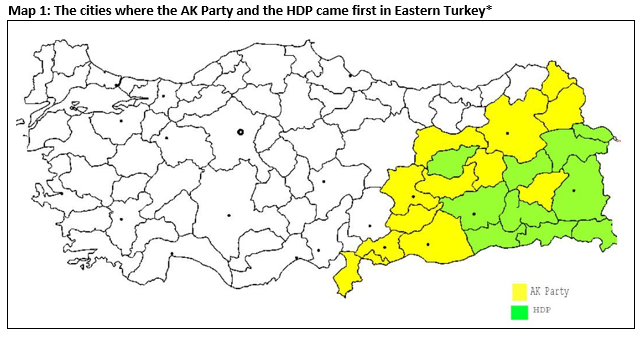 * these cities are chosen because they appear on the maps of the imaginary PKK state to be separated from Turkey. In other words, this is the area that the PKK calls Bakur (Northern) Kurdistan. In fact, the map is even conservative because some PKK maps also include cities such as Kahramanmaraş, Osmaniye, Sivas where the HDP has no promising results at all.
* these cities are chosen because they appear on the maps of the imaginary PKK state to be separated from Turkey. In other words, this is the area that the PKK calls Bakur (Northern) Kurdistan. In fact, the map is even conservative because some PKK maps also include cities such as Kahramanmaraş, Osmaniye, Sivas where the HDP has no promising results at all.
- While the AK Party won 62 seats from these cities in total, the numbers for the HDP, CHP, and MHP seats are, respectively, 46, 11 and 7.
- The CHP and MHP have not topped the race in any of the cities in the region. Nevertheless, the CHP reserved second rank in Ardahan, Erzincan, Gaziantep, Hatay, Malatya and Tunceli. The MHP, on the other hand, came second in Elazig, Erzurum, Igdır and Kilis (see map 2).
Recommended
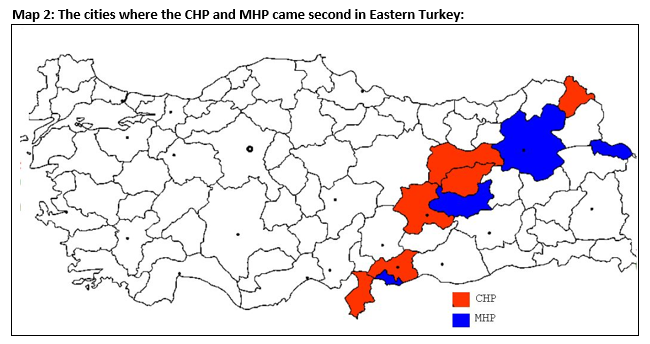
- The AK Party came third and, hence, is not amongst the top two parties in Igdir and Tunceli. The HDP was not among the top three parties in Elazig, Erzincan, Gaziantep, Hatay, Kilis and Malatya (see map 3).
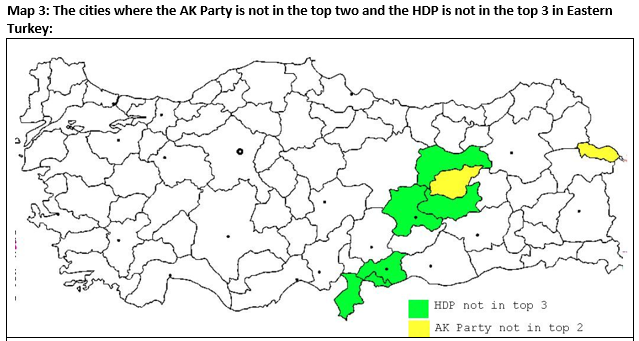
- In the cities of Erzincan and Kilis, AK Party won all the seats.
- As for the poorest performances, the HDP could receive only 2.3% of the votes in Kilis while AK Party stayed at 14.7 % in Tunceli.
- Hüda-Par can be seen to be successful compared to other minor ethnic Kurdish parties such as Hak-Par. Hak-Par candidates entered the elections with independent candidates yet its candidates could not exceed several hundred votes. When its independent candidates in Diyarbakir and Batman are also included, Hüda-Par received over 200,000 votes.
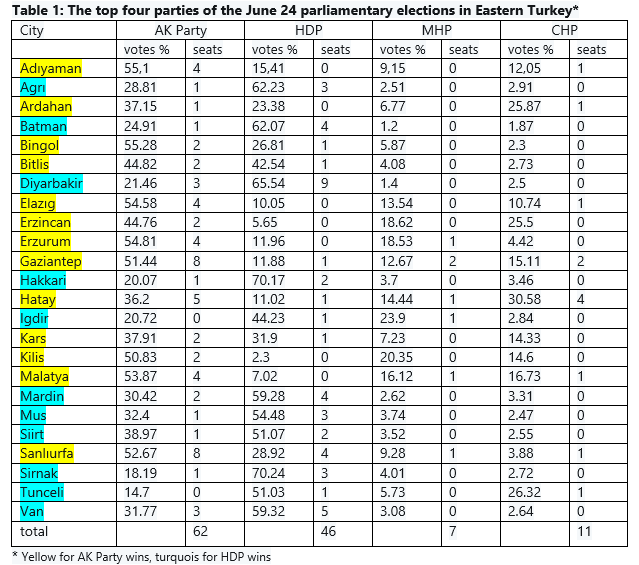
This column has addressed only one leg of the 24 June elections, parliamentary elections. If we had analyzed not the parties in the parliamentary elections but in the presidential elections, then the AK Party gets even brighter results. Given that Erdogan received more votes than his party whereas Demirtas below his party’s vote, the presidential elections in the region are much better off for the AK Party.
The other findings of the election results are as follows and will be analyzed in the upcoming column:
- The HDP has continued losing vote rates in the region as it was the case in the latest general elections of November, 2015.
- Pre-electoral alliances of other parties cost seats to the HDP.
Eastern Turkey includes a multiplicity of ethnic groups. Other than ethnic identification, political salience of ethnicity also differs across cities in Eastern Turkey. Hence, Turkey’s Kurdish (and non-Kurdish) votes do not act as a block but intra-Kurdish differences prevail in the region.
